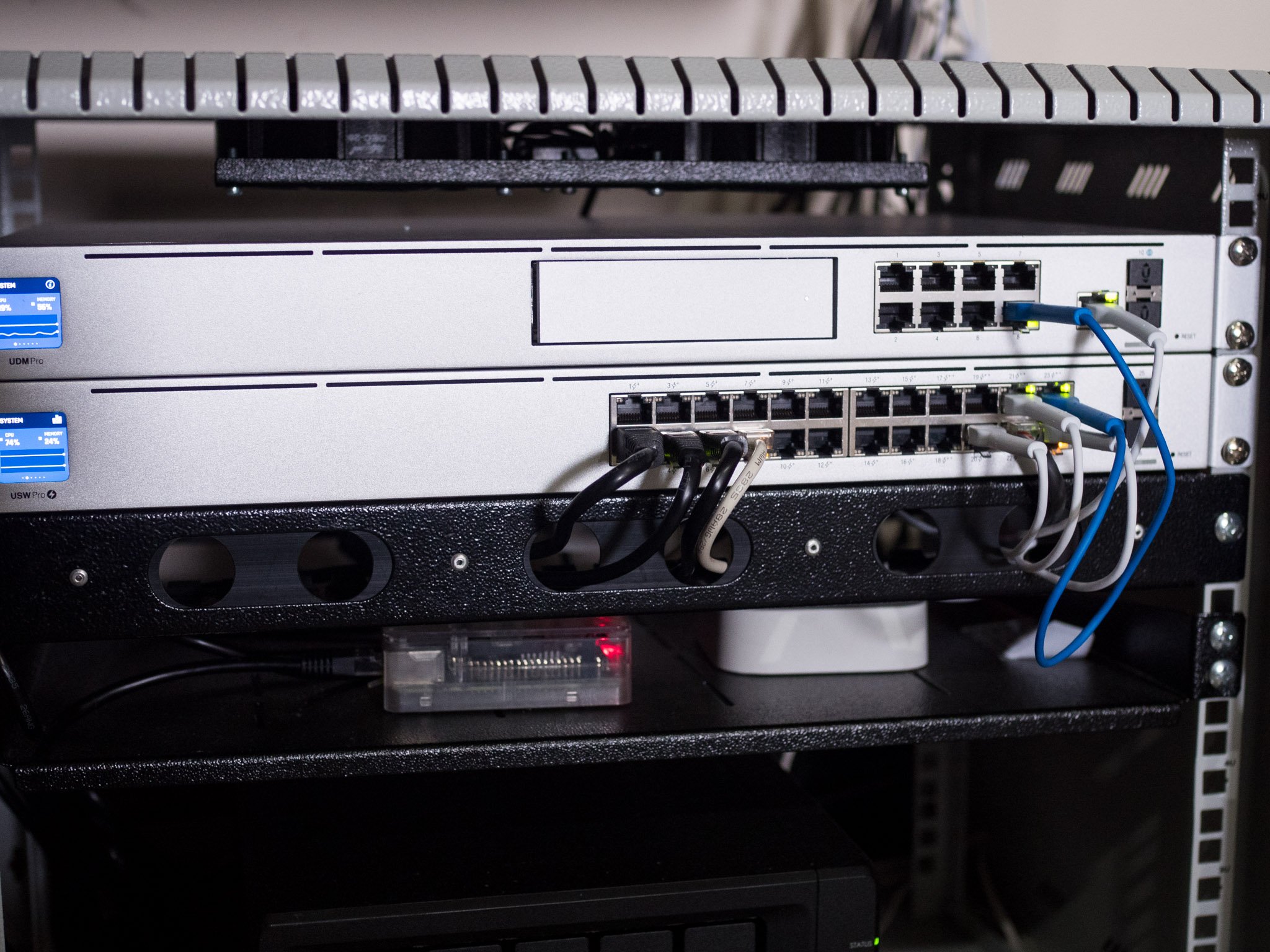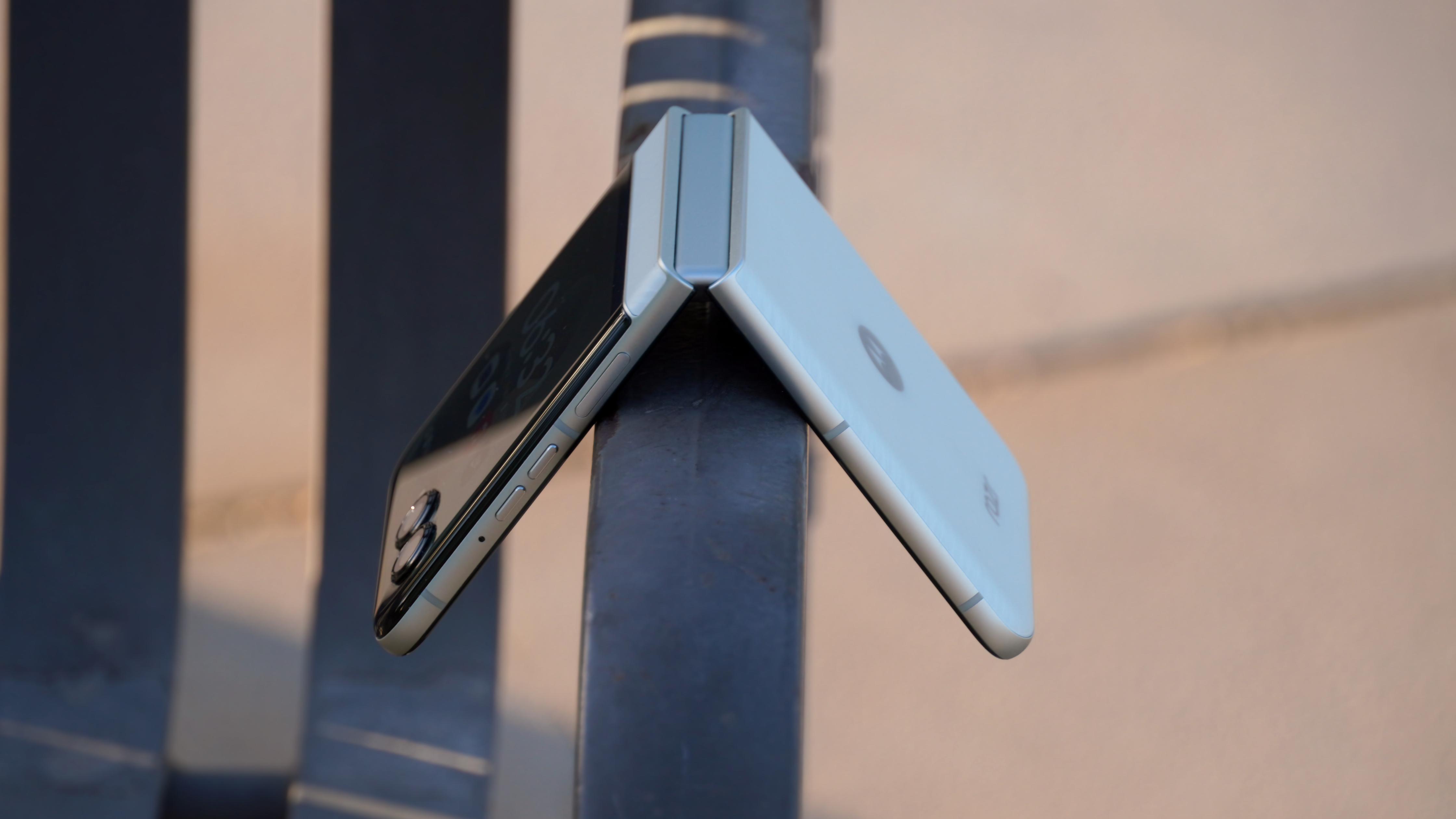Android Central Verdict
Bottom line: The UDM Pro lets you make the switch to 10GbE networking on a budget. The router is an integrated solution with excellent software features, top-of-the-line performance, and an outstanding intrusion prevention system that doesn't throttle your network bandwidth. Oh, and you even get a built-in network video recorder that lets you set up a local home security camera system without paying a license fee.
Pros
- +
Incredible performance
- +
Intrusion prevention works unerringly
- +
10GbE networking
- +
Built-in network video recorder
Cons
- -
No PoE ports
- -
Some features missing
Why you can trust Android Central
With most of us working from home for the foreseeable future, it is vital to have a router that can deliver consistent bandwidth to several devices at once. We've already rounded up the best Wi-Fi 6 routers and best Wi-Fi 6 mesh routers — highlighting the latest and greatest from ASUS, Netgear, TP-Link, Google, and others — and if you routinely face issues with connectivity, any of these options will sort out those problems.
Wi-Fi routers these days have sleek designs, modern UI with easily understandable options, and they even update automatically. But if you're a networking enthusiast and want something that's much more customizable, you'll want to take a look at Ubiquiti's UniFi Dream Machine Pro (I'm going to just call it UDM Pro).
Ubiquiti caters primarily to enthusiast users and businesses, with their products delivering enterprise-level performance while still being accessible enough that regular users can pick them up. That's the premise with the UniFi Dream Machine Pro; it is a rack-mountable version of the UniFi Dream Machine that I reviewed a few years ago, touting exciting upgrades across the board.
Ubiquiti UniFi Dream Machine Pro: Price and availability
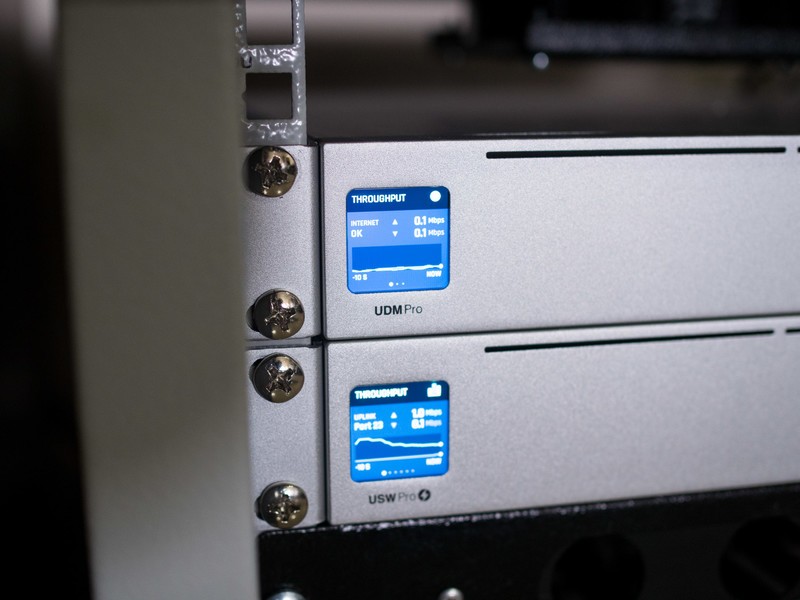
The UDM Pro is available in all markets where Ubiquiti has an official presence. That includes North America, Europe, Brazil, Taiwan, Japan, and India. The UDM Pro is sold for $379 in the U.S., €319 in Europe, and ₹41,299 in India.
Customers in India will be able to get ₹2,000 off the cost of the UDM Pro by going to Ubiquiti's site from the link above or using ACINDIA. Ubiquiti gear never goes on sale, so this is a good way to save some cash if you're interested in getting your hands on the UDM Pro.
Ubiquiti UniFi Dream Machine Pro: What you'll love
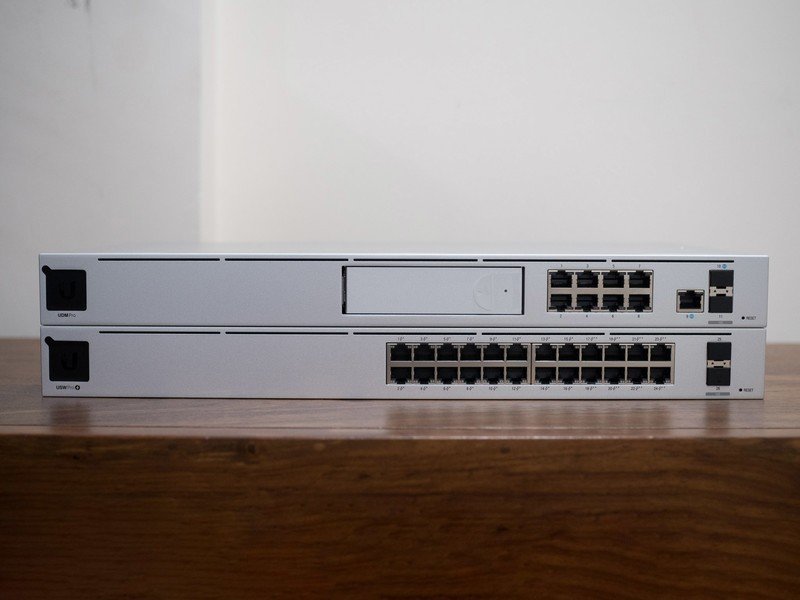
Ubiquiti has simplified access to its UniFi ecosystem in recent years; earlier, you had to buy a Security Gateway for routing, a switch, a Cloud Key that served as the console, and Wi-Fi access points. Ubiquiti combined all of these parts into a single product in 2019 and called it the UniFi Dream Machine (UDM), and it was a turning point for the manufacturer. The UDM was just like consumer routers in that it offered an all-in-one solution for routing, switching, and wireless access, but it retained the customizability that's at the forefront of UniFi.
The UDM Pro gives you 10GbE networking for under $400.
The UDM Pro builds on the feature-set of the UDM. As the UDM Pro is a rack-mountable gateway, it misses out on wireless connectivity; rack servers aren't necessarily conducive for wireless signals, so it wouldn't have been a good idea to add an access point to the UDM Pro. While you can technically use the UDM Pro without a server rack (you can just put it on a table), you're better off picking one up as it can then house the rest of your networking hardware.
Get the latest news from Android Central, your trusted companion in the world of Android
I went with a 9U server rack that I found on Amazon, but if you're looking for suggestions, anything from StarTech should be a great fit. Ubiquiti includes the brackets and screws that you need to mount the UDM Pro within a rack, and it's easy enough to do so — it took me 30 minutes to slot the UDM Pro and the UniFi switch into the server.
The UDM Pro features an 8-port Gigabit switch, two 10GbE SFP+ ports (one for WAN and one for LAN), an integrated security gateway, and a 3.5-inch hard drive slot. The HDD slot is there for leveraging Ubiquiti's Protect range of security cameras, but more on that later.
As for the hardware itself, the UDM Pro is powered by four Cortex A57 cores that go up to 1.7GHz, and it has 4GB of RAM and 16GB of onboard memory. That's considerably more than what you'll find on an average router, and it ensures that there's more than enough headroom for the future. There's also a 1.3-inch screen that lets you view the throughput, see the number of devices connected to the UDM Pro, adjust the fans, see system load, and more.
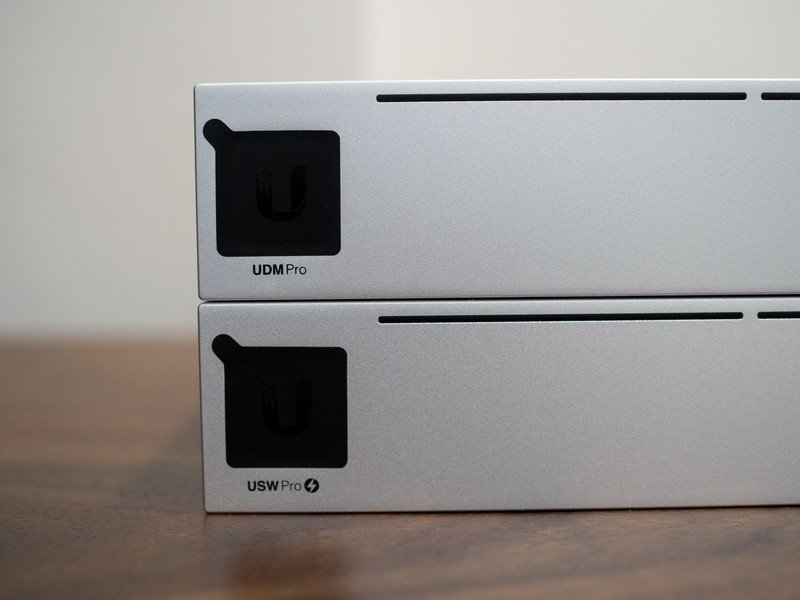
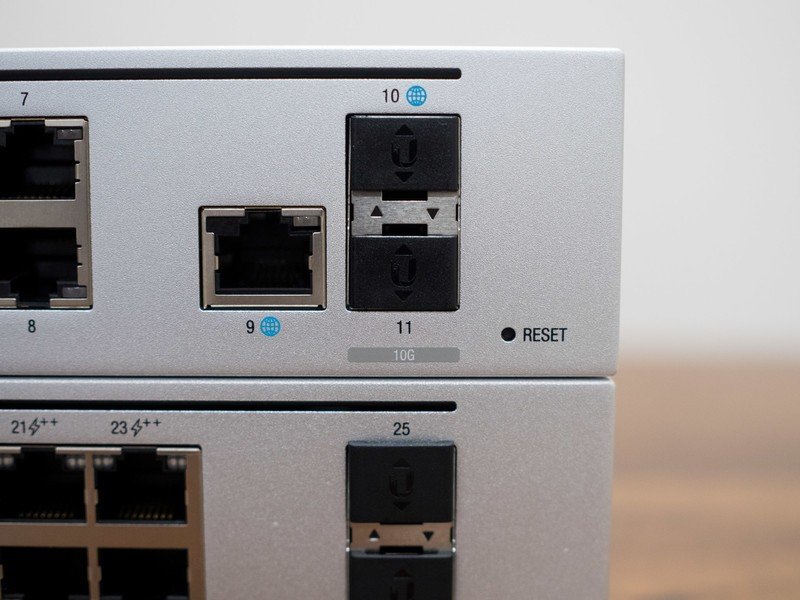
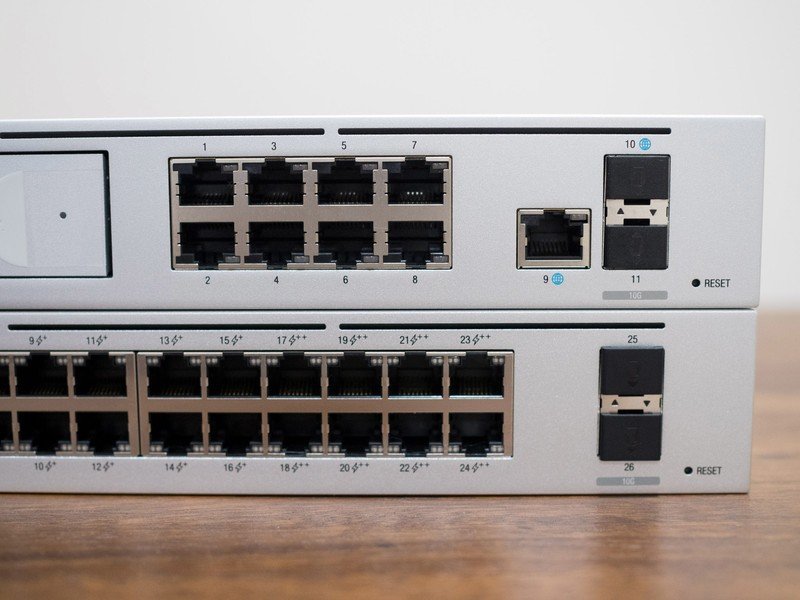
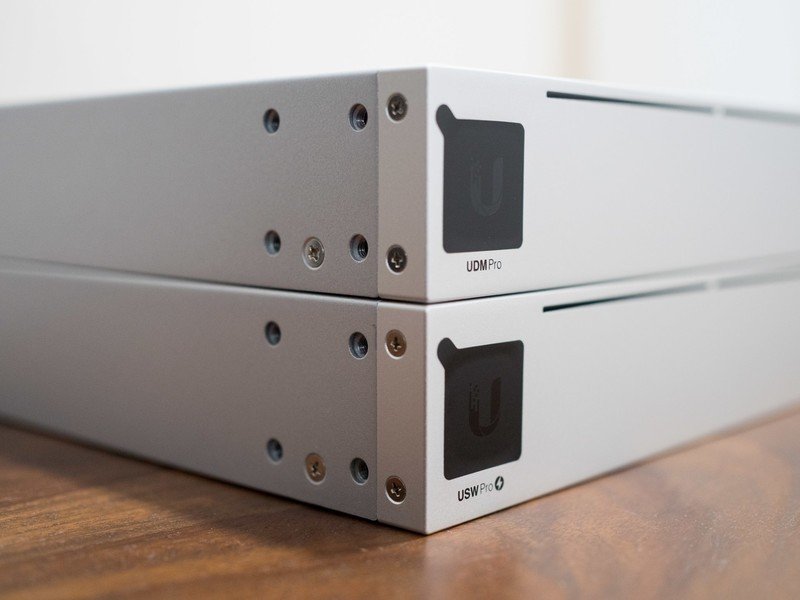
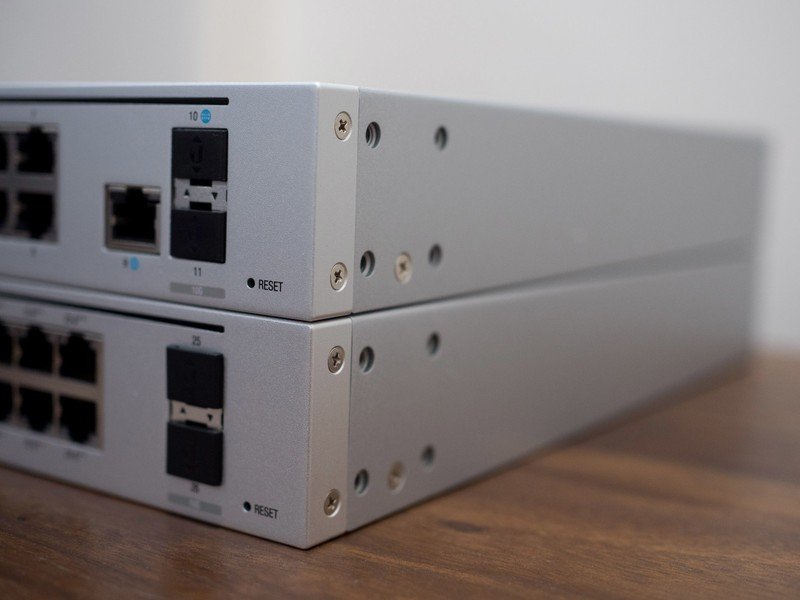
As the UDM Pro comes with an integrated UniFi controller, you can easily set up and configure the device. It has Bluetooth connectivity, and you can download the UniFi Network app from the Play Store, set up a Ubiquiti account, and locate the device. The initial configuration takes under five minutes, but you will need an internet connection to pair the UDM Pro with your phone.
Because the UDM Pro doesn't have wireless connectivity, you will need to pick up access points to use with the device. Thankfully, Ubiquiti has two Wi-Fi 6 access points now — UniFi 6 Lite and UniFi 6 LR — and either option should work fine to get things going (I'll be reviewing these shortly).
Ubiquiti's intrusion prevention system does a great job safeguarding your home network.
Once the UDM Pro is set up, you can then log in to the UniFi OS dashboard and access all the features on offer. The UDM Pro works with all four UniFi OS modules: UniFi Network, UniFi Protect, UniFi Access, and UniFi Talk. UniFi Access is a door access service that lets businesses manage entry for staff and visitors, and UniFi Talk is a VoIP package aimed at businesses. The modules that you'll be interested in if you're eyeing the UDM Pro for your home are UniFi Network and Protect.
Now, the key differentiator for the UDM Pro is that it can deliver up to 3.5Gbps bandwidth with Ubiquiti's intrusion detection (IDS) or intrusion prevention system (IPS) enabled. With IPS enabled, the UDM Pro will safeguard your home network against active botnets, malware (including ones targeted at mobile devices), and trojans. You can also disable access to P2P or TOR clients entirely, and with five levels of protection to choose from, there is a lot of customizability here.
You can set up IPS to scan internet traffic for vulnerabilities within ActiveX, DNS, or SQL, exploits within games, set up geofencing, and block malicious IP addresses. The service does a great job overall and comes in particularly handy for IoT devices.
UniFi Network lets you set up and manage your home security camera system without paying a monthly fee.
In terms of day-to-day performance, the UDM Pro has a clear edge over the UDM. For example, my home UniFi network includes a UDM Pro connected to a UniFi Switch Pro 24 PoE, with a UniFi 6 LR and UniFi 6 Lite for wireless access. I was using an Ubiquiti Alien before switching to the UniFi gear, and the standout feature for me is UniFi OS; the management software has an extensive set of features for routing, security, and bandwidth management.
Another key area where the UDM Pro stands out against the regular UDM is the network video recorder (NVR). In addition, the UDM Pro features a built-in hard drive tray and works with Ubiquiti's Protect series of security cameras, so you can set up a robust home security network that is powered straight off the router.
One of the advantages in doing so is that the data is stored locally — ensuring your privacy — and you don't have to pay a monthly fee to use your own security cameras, like Nest and Ring make you do.
As a side note, if you are looking to use the network video recorder features on offer, you'll need to pick up a hard drive with the UDM Pro (if you don't have one lying around). Ubiquiti has a bundle where it includes the UDM Pro and an 8TB HDD for $569. The bundled storage is WD Purple, and you get to save around $50 to $60 by buying both together.
Ubiquiti UniFi Dream Machine Pro: What needs work
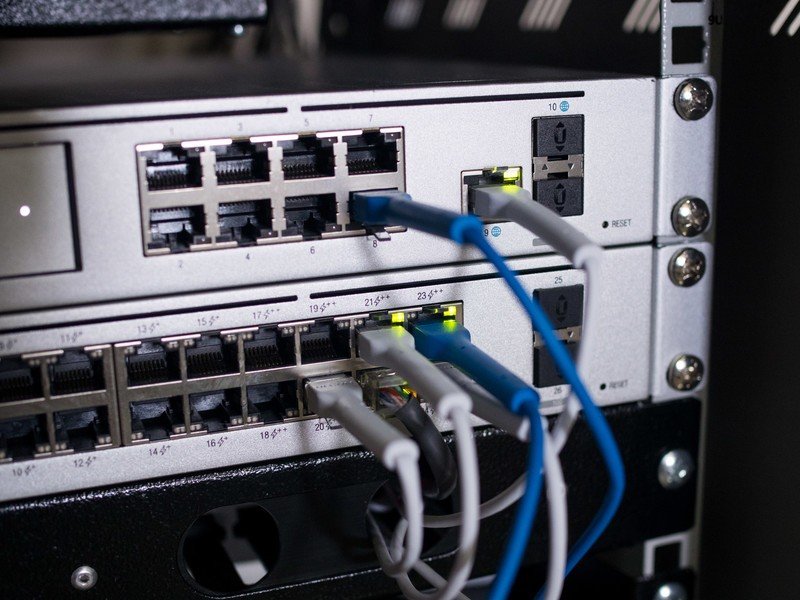
For all that the UDM Pro gets right, there are a few drawbacks, like the lack of PoE ports. So if you are looking to pick up Ubiquiti's access points, you will need to buy a UniFi switch that offers PoE, or pick up PoE injectors instead to power the access points.
Another issue is that the 8-port switch on the UDM Pro is limited to a 1GbE backplane, so if you're using a NAS and want to set up Link Aggregation for faster file transfers, you will ideally have to use a dedicated UniFi switch.
Ubiquiti UniFi Dream Machine Pro Competition
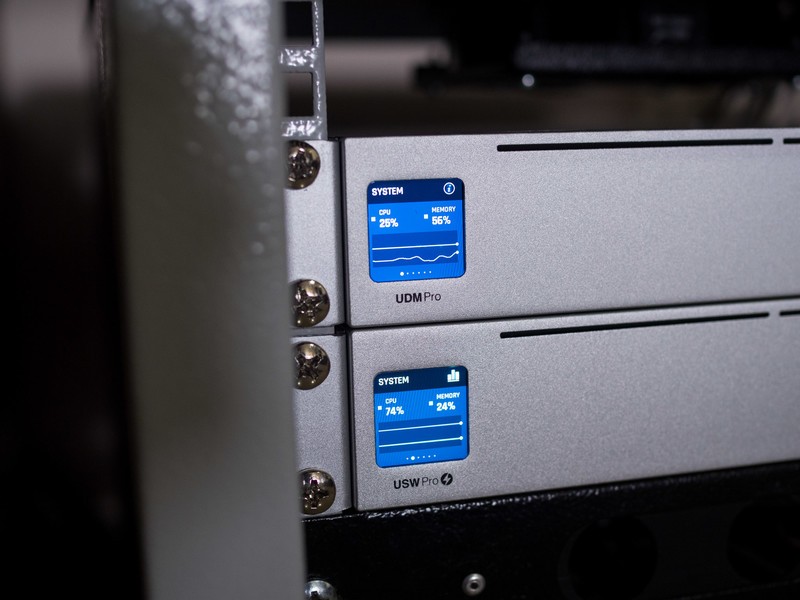
The UDM Pro differs from the UDM in that it has a built-in drive and works as a network video recorder. If you don't need this feature, the UDM is a better option as it works as an all-in-one device that includes an access point for Wi-Fi ac connectivity. The UDM also has the added benefit of not requiring a rack mount, so if you haven't decided on a server install just yet, it is a decent choice.
If you're looking at a similar rack-mountable routing solution, Microtik's CCR1009-7G-1C-1S+ may just be the router for you. It has powerful hardware, one SFP+ port if you're looking for 10GbE connectivity, seven Gigabit Ethernet ports, and features Miktorik's RouterOS that gives you extensive routing and bandwidth management options.
Ubiquiti UniFi Dream Machine Pro: Should you buy it?

You should buy this if ...
- You want a router with 10GbE networking
- You need comprehensive bandwidth management features
- You need integration with security cameras
- You've already invested in UniFi hardware
You shouldn't buy this if...
- You want an all-in-one router with wireless connectivity
- You need PoE ports
Ultimately, the UDM Pro delivers the features you're looking for in a high-end routing solution. If you have a Gigabit fiber connection or are looking for a future-proof networking utility with up to 10GbE connectivity, the UDM Pro is the ideal option for you. In addition, the built-in network video recording features means the UDM Pro also does a great job as a gateway for your home security cameras and is a great alternative to the likes of Nest and Ring.
4.5 out of 5
Ubiquiti's robust UniFi OS has all the features you're looking for in a router management software, and the tight integration with the rest of the UniFi portfolio makes the UDM Pro a standout choice if you're looking to upgrade from the USG or an EdgeRouter.

Ubiquiti UniFi Dream Machine Pro
Bottom line: The UDM Pro lets you make the switch to 10GbE networking on a budget. The router is an integrated solution with excellent software features, top-of-the-line performance, and an outstanding intrusion prevention system that doesn't throttle your network bandwidth. Oh, and you even get a built-in network video recorder that lets you set up a local home security camera system without paying a license fee.

Harish Jonnalagadda is Android Central's Senior Editor overseeing mobile coverage. In his current role, he leads the site's coverage of Chinese phone brands, networking products, and AV gear. He has been testing phones for over a decade, and has extensive experience in mobile hardware and the global semiconductor industry. Contact him on Twitter at @chunkynerd.
